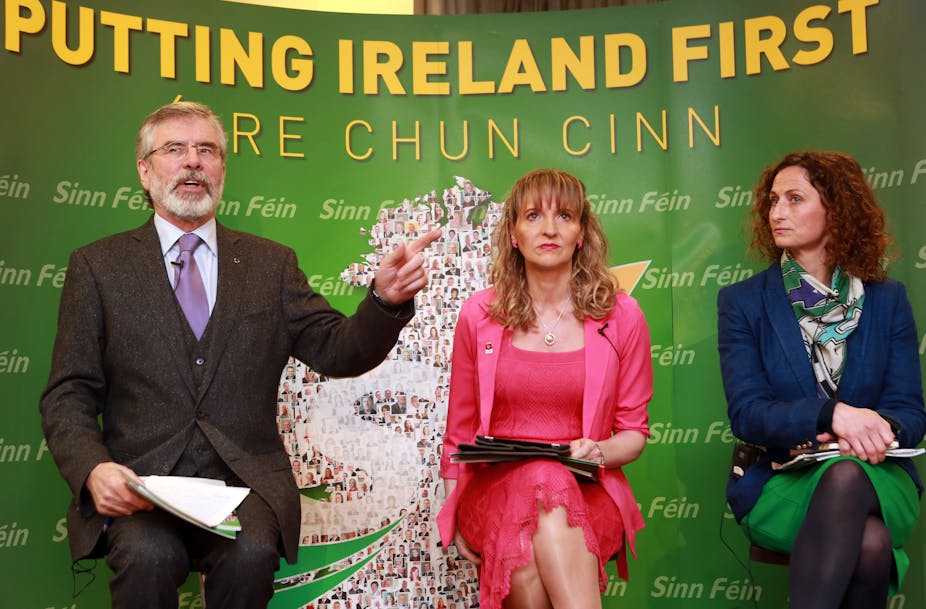The Republic of Ireland will be voting in the European Parliament elections on Friday May 23 – on the same day as the country holds its local elections. Ireland’s representation in the European Parliament is being reduced from 12 seats in 2009 to 11 seats, involving a reduction from four to three regional constituencies (Dublin; South; Midlands-North West).
The country is one of only two EU members (the other is Malta) that will be using the Single Transferable Vote system for the election. The STV is also used in the Northern Ireland constituency within the UK.
Since 2008, political debate in the Republic of Ireland has been dominated by the fall-out from the country’s banking crisis and recession. The crisis led to an EU bail-out package of €67.5 billion in November 2010 after which Ireland was effectively ruled by the “Troika” of the European Commission, the European Central Bank and the IMF. A series of austerity budgets were imposed, first by a Fianna Fáil-Green Party coalition government – and after they suffered a resounding defeat in the general election of 2011, by a Fine Gael-Labour Party coalition.
In December 2013 the country left the bail-out programme and was able to return to borrowing on the international financial markets. However, the government’s budget choices were still tightly constrained by the EU.

It might therefore be assumed that the issues of European integration and the economy would dominate the 2014 EP election. But while the state of the economy is undoubtedly the main issue in the 2014 EP election, there is much less of a debate around the European Union. This reflects the fact that there is still a wide political consensus in favour of the EU in Ireland, coupled with a sense that there is no feasible alternative to EU participation.
Similarly, in relation to the economic issues, there is a broad political consensus that there are few realistic alternatives available to Ireland. Therefore, the debate centres more on minor differences of interpretation, with one or two issues becoming symbols of public acquiescence or opposition to austerity. Notably, the proposed introduction of water charges is one which will resonate in both the local and European election campaigns, since the charges are being introduced as part of the requirements of the bail-out.
Poll setback for governing coalition
European Parliament elections almost always produce reversals for government parties, and this seems set to continue in the Irish case in 2014. The two partners in the coalition government, the centre-right Fine Gael and the centre-left Labour Party, have been losing support steadily in opinion polls.
In particular, Labour is struggling as voters seem set to penalise it for supporting a programme of cut-backs. The polls indicate increased support for the main centre-right opposition party, Fianna Fáil, and for the left-wing and nationalist Sinn Féin party. In addition, independent candidates and minor parties usually do well in Irish elections.

However, these lines of division amongst the key players do not map readily onto the key issues. As already noted, Fianna Fáil share very similar policy approaches to the economy and to the EU as do Fine Gael and Labour. Therefore, a successful election for Fianna Fáil is unlikely to produce any significant change of emphasis in Ireland’s relationship with Europe. A success for Sinn Féin would potentially be of greater import, as that party has been a more persistent critic of the austerity programmes and of the current direction of many EU policies.
The public response is likely to be conditioned by dissatisfaction with the economic conditions in the country, coupled with a feeling that there are few alternatives available. Certainly, while Ireland has traditionally been strongly supportive of European integration, recent polls have shown a decline in that support.
However, at the same time the polls indicate that voters still accept the broad approach as laid down by the Troika and the government. So while there is evidence of growing discontentment with the EU, this has reached nothing like the levels of Euroscepticism to be found in countries like the UK or Greece.

